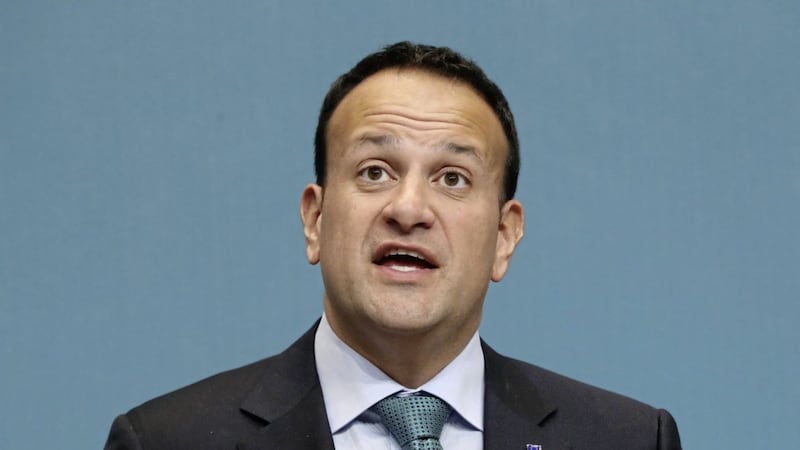One of the great arts of politics is the ability to turn a crisis into an opportunity.
So while Brexit's long-term impact on Ireland will be mainly economic, its immediate influence is more likely to be political. With a possible three elections within the next year, that means lots of opportunities.
The nature and content of Brexit will determine the date of the next southern general election and significantly influence its outcome and thus the careers of the three main party leaders. It will impact on the results of the European and local government elections in May and it will even help to shape the future of Stormont.
Welcome to the impending world of Irish post-Brexit politics. While Britain's traditional party system is in meltdown, Irish politics remains unchanged, as the main nationalist parties intensify the competition to claim ownership of the long-lost soul of Ireland.
In Britain, Brexit may mean Brexit. In Ireland it means it is time for some serious electioneering.
If Britain leaves the EU on March 29, Taoiseach Leo Varadkar will be keen to push for an early election, not just to claim credit for having stood up to the Brits, as Gerry Adams recently asked him to do, but to divert attention from pressing domestic issues which are currently undermining his support.
These include the national debt of €200 billion, the struggling health and education services, the spiralling cost of the National Children's Hospital and likely new taxes to address Ireland's appalling record on carbon emissions.
An election campaign on "How we beat the Brits in the great Brexit war" would relegate all those issues. But if Varadkar proves to have been wrong in placing all his eggs in the EU basket, he will face a more difficult decision. With the local government and European Parliament elections scheduled for May, he has a choice between holding a general election on the same day or leaving it until the autumn at the earliest.
If, as appears increasingly likely, Britain delays its exit from the EU, Leo's growing domestic problems may tilt the Brexit opportunity more towards Micheal Martin's Fianna Fáil. Martin has been less inclined to wave the green flag. Conscious of a possible weakening of EU support for Ireland, his pre-election position has been to recognise the need for British-Irish trade and co-operation in the post-Brexit era.
His main problem is rebellion within his own party over its agreement to keep Fine Gael in power. He says it is necessary to maintain pre-Brexit political stability. So a stable Brexit will likely mean the end of FF support for the government and thus an election.
So where does that leave Sinn Féin? There is no doubt that the party will have another resounding victory in the north's local government elections, which will come too soon for the SDLP-Fianna Fáil partnership to have any significant impact.
But it is less clear how SF will perform in a southern general election. Mary Lou McDonald's high media profile is not translating into growing party support. Indeed it may be counter-productive. For example, her recent comments on the recruitment of a new PSNI Chief Constable showed a remarkable disregard for the north's fair employment legislation. She might be better leaving northern issues to Michelle O'Neill.
Her main problem in the south is that Leo's hard nationalist position in the Great Brexit War, has effectively stolen SF's anti-British clothes. Fianna Fáil saw that coming and moved its position. Leo acts as the undisputed leader of Irish nationalism, leaving Sinn Féin uncertain how to react.
The party also appears unsure whether it should present itself as the next government's junior coalition partner, or play a more radical anti-government role. For example, the recent trip by party representatives to support the socialist President Maduro in Venezuela may have been democratically justified, but it will win them few friends in Fine Gael and it will be a hard election sell in Dublin 4.
If SF fails to make it as junior coalition partner in Dublin, it is unlikely to return to Stormont for some time. It is also unlikely that Mary Lou will remain as leader, especially following SF's poor presidential election result.
So while Ireland fights its corner in the Great Brexit War, watch for the subtle, and not so-subtle, electioneering in all that the three main nationalist parties say and do. A crisis as good as Brexit could make many a political career. It could also end a few and that's why there is more at stake than the Irish economy. The real political argument now is who will be in charge of that economy.









